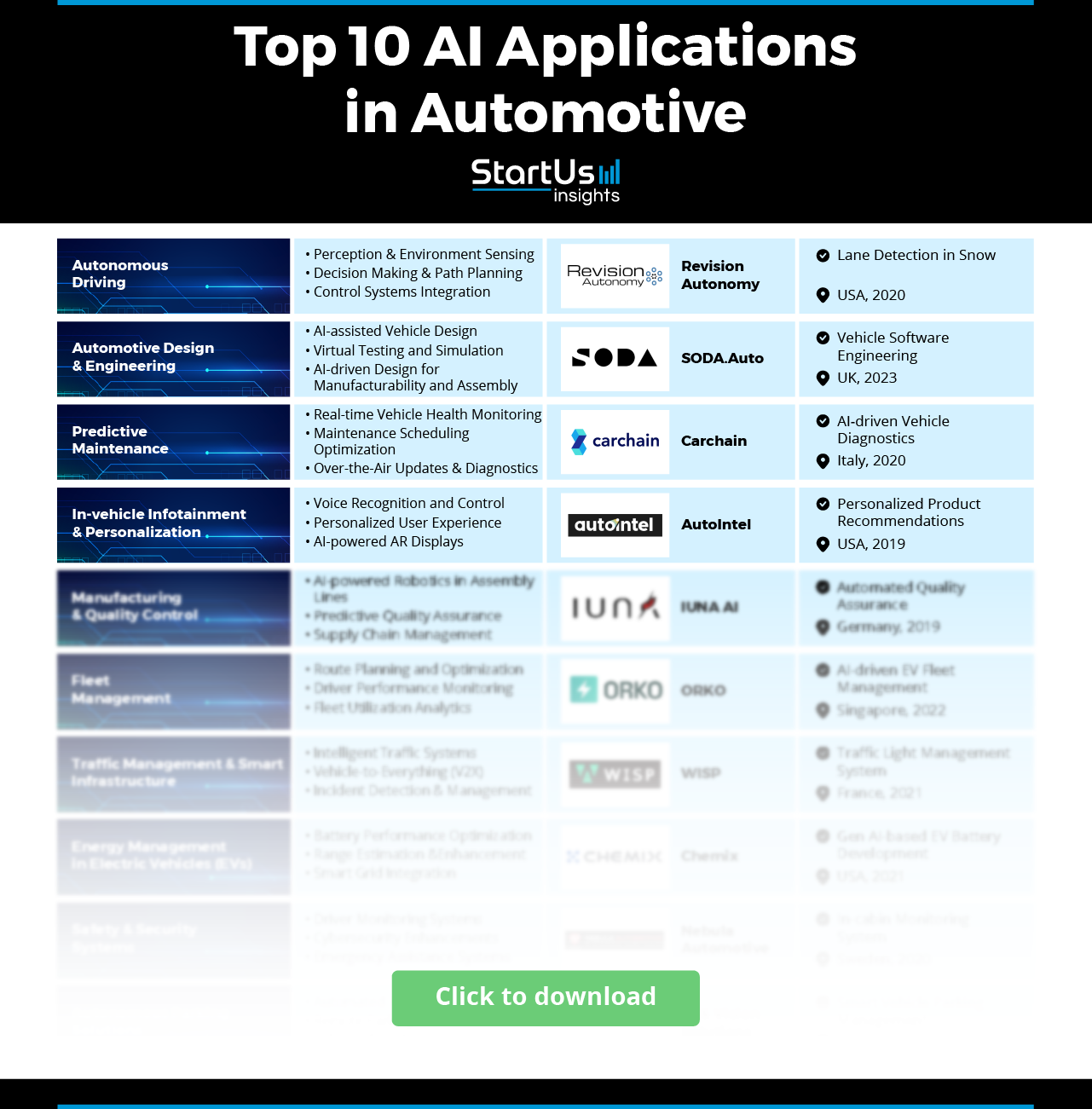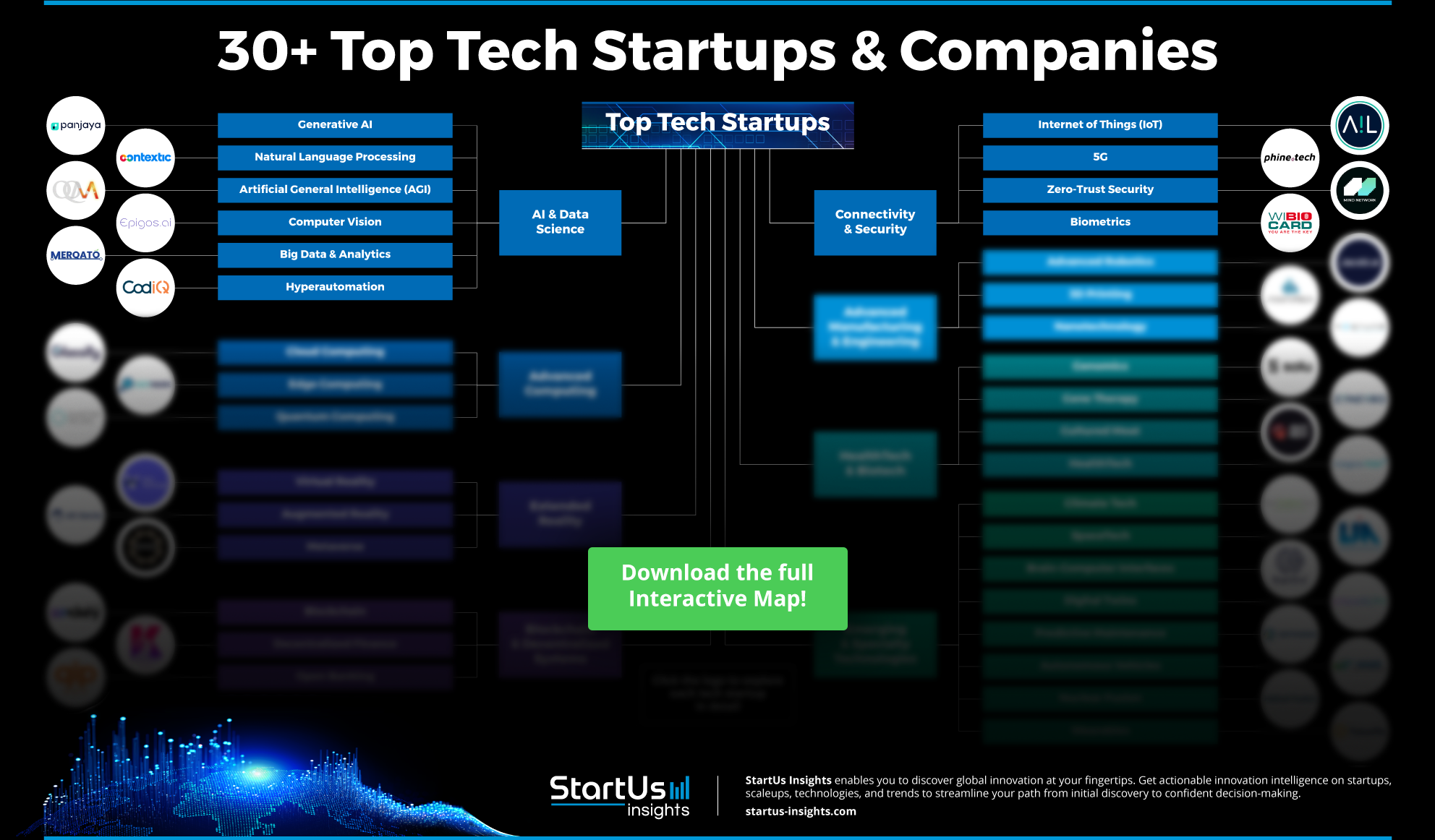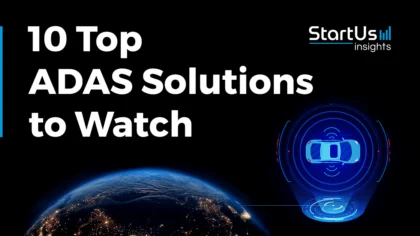The automotive industry faces challenges such as rising safety demands, production inefficiencies, supply chain disruptions, and the need for sustainable energy management. AI offers targeted solutions to address these challenges across multiple facets. In autonomous driving, technologies like Revision Autonomy’s lane detection system enhance vehicle navigation, even in adverse conditions. AI-powered predictive maintenance minimizes unexpected breakdowns to reduce downtime and repair costs by forecasting failures before they occur.
AI enhances manufacturing processes by improving quality control to detect defects early and streamline production. In response to increasing safety demands, solutions like Nebula Automotive’s Nebula DMS monitor driver fatigue and distractions to prevent accidents. Moreover, AI optimizes supply chains and fleet operations to address logistical challenges, while supporting energy management in electric vehicles to meet sustainability targets. Adopting these innovations enables stakeholders to overcome challenges and lead in the future of AI in the automotive industry.
Why should you read this report?
- Gain in-depth insights into the top 10 use cases of artificial intelligence in automotive
- Learn about various AI in automotive examples for each use case
- Meet 10 innovative startups advancing these automotive solutions

Key Takeaways
- Autonomous Driving
- Startup to Watch: Revision Autonomy
- Automotive Design and Engineering
- Startup to Watch: SODA.Auto
- Predictive Maintenance
- Startup to Watch: Carchain
- In-vehicle Infotainment and Personalization
- Startup to Watch: AutoIntel
- Manufacturing and Quality Control
- Startup to Watch: IUNA AI
- Fleet Management
- Startup to Watch: ORKO
- Traffic Management & Smart Infrastructure
- Startup to Watch: WISP
- Energy Management in Electric Vehicles (EVs)
- Startup to Watch: Chemix
- Safety and Security Systems
- Startup to Watch: Nebula Automotive
- Autonomous Parking Solutions
- Startup to Watch: Ai & Vision Solutions
FAQs: Applications of AI in the Automotive Industry
How is AI used in the automotive industry?
AI reshapes the automotive industry through multiple applications that enhance safety, efficiency, and customer experience. Advanced driver assistance systems (ADAS) use sensors, cameras, and radar to provide features like automatic emergency braking, lane-keeping assistance, and adaptive cruise control to reduce accident risks. Predictive maintenance analyzes vehicle data to detect potential issues before breakdowns, which allows manufacturers to optimize schedules and improve reliability.
In automotive manufacturing, AI improves supply chain management by optimizing production planning, predicting demand, and reducing inventory costs. AI tools like computer vision assist in quality control by identifying defects in raw materials and components during production. Further, AI enables personalized customer experiences through virtual assistants, chatbots, and targeted marketing. This improves engagement and satisfaction across dealerships and online platforms.
What is the future of AI in cars?
AI will be the foundation for fully autonomous cars, that enable real-time decision-making using data from multiple sources like LiDAR and RADAR to navigate traffic safely. Vehicle-to-everything (V2X) communication will allow cars to interact with other vehicles, infrastructure, and pedestrians to improve traffic flow and safety. AI-powered digital cockpits will personalize in-car experiences by adjusting settings like seat positions, music, and climate control based on driver preferences. Moreover, software-defined vehicles (SDVs) will feature more updates delivered through software to create new revenue streams through subscription services and frequent updates.
Where is this Data from?
StartUs Insights provides data through its comprehensive Discovery Platform, which covers 4.7+ million startups, scaleups, and tech companies globally, as well as 20K+ emerging technologies & trends. The platform excels in startup and technology scouting, trend intelligence, and patent searches, offering a detailed view of the innovation landscape. For this report, we analyzed technologies within specific industries using the trend intelligence feature. During this research, we identified patterns and trends, pinpointing relevant use cases and the startups developing solutions for each. More capabilities and details are available at StartUs Insights Discovery Platform.
10 Top Applications of Artificial Intelligence in the Automotive Industry [2025 & Beyond]
1. Autonomous Driving
Key components of autonomous driving include perception and environment sensing, where AI processes data from sensors such as LiDAR, RADAR, and cameras to understand the vehicle’s surroundings and identify objects like vehicles, pedestrians, and road signs. This enables the vehicle to maintain situational awareness. For decision-making and path planning, AI algorithms analyze the perception data to make informed navigation decisions. It includes optimizing the path, adjusting speed, and adhering to traffic rules. The integration of control systems translates these AI-driven decisions into precise maneuvers through the vehicle’s mechanical and software systems to ensure smooth operation across varying driving conditions. Further, AI enhances advanced driver assistance systems (ADAS) by offering features like adaptive cruise control and automatic emergency braking to improve safety and reduce human error.
Startup to Watch: Revision Autonomy
US startup Revision Autonomy offers a lane detection system optimized for snowy conditions using computer vision. Its Lane Detection in Snow (LDIS) software monitors roadways to identify lane markers even when snow partially obscures them. It uses sensor fusion to combine visual and thermal inputs to create a detection system in challenging winter weather. This ensures accuracy by distinguishing between lane markings and snow patterns. Revision Autonomy enables safer navigation and efficient vehicle control in winter climates and improves lane-keeping performance.
2. Automotive Design and Engineering
In AI-assisted vehicle design, generative AI tools enable designers to explore numerous design variations and optimize for factors like aerodynamics and material efficiency. This creates more durable and sustainable components to accelerate the design phase by providing innovative solutions based on predefined parameters. Virtual testing and simulation further enhance design processes by using digital twins and machine learning algorithms to simulate real-world conditions. This reduces the need for costly physical prototypes, which allows engineers to predict vehicle performance under various scenarios, improve accuracy, and reduce time to market. AI-driven design for manufacturability and assembly integrates AI into production lines, where robots perform precise tasks like component assembly and quality control. These systems use computer vision to identify defects and optimize assembly processes. It reduces manufacturing costs and improves product quality.
Startup to Watch: SODA.Auto
UK startup SODA.Auto develops vehicle software engineering solutions for creating software-defined vehicles (SDVs). Its SDV Kit integrates modular engineering tools, reusable software components, and digital twin to streamline design, testing, and validation processes. The startup offers SODA.Sim platform for simulations, where automakers conduct virtual testing at the component level, from sensors to control units to ensure software integration early in development. The SDV Kit supports automotive startups and established manufacturers with scalable engineering solutions. These tools reduce development timelines and costs by leveraging AI-driven libraries and scenario generators. SODA.Auto enables precise testing of autonomous and connected vehicle systems in simulated real-world conditions leveraging virtual environments powered by the Unreal Engine.
3. Predictive Maintenance
AI-driven predictive maintenance is changing the automotive industry by leveraging machine learning and real-time data analysis to anticipate vehicle issues before they become critical. Sensors and internet of things (IoT) track a vehicle’s performance continuously, which allows AI systems to detect anomalies and predict potential failures. This proactive approach minimizes unplanned downtime, reduces repair costs, and extends vehicle lifespan by ensuring timely maintenance. AI algorithms further prioritize and schedule maintenance tasks based on the predicted importance of components and their likelihood of failure. This ensures efficient resource allocation, minimizes operational disruptions, and enhances vehicle reliability. Further, over-the-air updates and diagnostics enable remote software updates and diagnostics for quick resolution of issues without physical intervention.
Startup to Watch: Carchain
Italian startup Carchain integrates blockchain and AI-powered solutions to optimize fleet management and predictive maintenance in the automotive industry. It digitizes vehicle records through NFTs to ensure secure, tamper-proof documentation. The platform uses real-time tracking to monitor vehicle performance, usage, and emissions. Its AI-based predictive maintenance tools generate maintenance alerts to prevent breakdowns and downtime. Carchain promotes sustainability by automating carbon offsetting through certified carbon credits. Its dynamic QR codes streamline operations, allowing the update of vehicle ads and information for automotive management.
4. In-vehicle Infotainment and Personalization
Voice recognition and control, powered by natural language processing, allow hands-free management of car features to improve safety. AI learns from user behavior and preferences to achieve a personalized user experience. Automakers use AI to tailor settings such as seat positions, climate control, and infotainment options to create a customized environment without manual input. AI-powered augmented reality (AR) displays enhance the driving experience by overlaying real-time information onto the windshield or dashboard. It includes navigation assistance, traffic updates, and points of interest while keeping the driver’s focus on the road. Further, AI-driven music recommendations and contextual advertising offer personalized media content and targeted marketing based on vehicle owners’ preferences.
Startup to Watch: AutoIntel
US startup AutoIntel offers AI-driven tools for personalized product recommendations tailored for automotive retailers to enhance user engagement and lead conversion. The platform includes the Recommender System, Intelligent Co-Pilot (Whiz), and Product Configurator. The Recommender System delivers targeted vehicle recommendations based on the owner’s behavior, preferences, and inventory alignment. Whiz facilitates real-time conversations between customers and product experts, using behavioral analysis to guide purchasing decisions. The Product Configurator allows users to customize vehicle features with a cross-domain rule validation engine to ensure real-time product data accuracy. This integration extends across dealership inventory to offer insights into product availability and enable transitions from online exploration to in-person purchases. Further, the Customer Dossier captures high-intent buyer behavior to give retailers data-driven tools to refine inventory planning and improve upsell strategies.
5. Manufacturing and Quality Control
AI is transforming manufacturing and quality control in the automotive industry by enhancing efficiency, precision, and reliability. AI-powered robotics in assembly lines use machine learning and computer vision to automate complex tasks like welding and painting to ensure consistent quality and reduce human error. These robots work alongside human workers to increase productivity and flexibility in production processes. Moreover, AI algorithms analyze data from sensors and cameras to identify defects in components before assembly. This predictive quality assurance minimizes waste, reduces rework costs, and ensures only quality products reach the market. Further, AI systems analyze vast amounts of data to predict supply chain disruptions, optimize logistics, and ensure timely delivery of parts.
Startup to Watch: IUNA AI
German startup IUNA AI offers automated quality assurance solutions using AI-based vision systems for industrial manufacturing. Its Auto Scanner for vehicle production uses cameras and deep learning models to inspect surfaces for defects and locate them precisely. The system integrates into production lines and enables continuous monitoring without major modifications. The startup enhances inspection accuracy, transparency in process-related errors, and cost savings through automation. IUNA AI improves product quality and streamlines manufacturing processes by offering scalable, modular solutions for visual inspections across industries.

6. Fleet Management
Route planning and optimization rely on AI systems to analyze real-time data on traffic, weather, and road conditions to ensure efficient deliveries and minimize fuel consumption. This tools allows fleets to adapt quickly to changing circumstances and maintain operational efficiency. Driver performance monitoring systems employ AI to track driving behaviors like speed, braking patterns, and route adherence. The insights generated enhance safety by identifying risky behaviors and lowering insurance premiums. Fleet utilization analytics assess vehicle usage patterns to optimize fleet size and improve asset utilization. By leveraging telematics data, fleet managers make data-driven decisions about vehicle deployment and maintenance schedules.
Startup to Watch: ORKO
Singaporean startup ORKO develops an AI-powered fleet management platform for electric vehicles (EVs). It offers real-time diagnostics, battery health monitoring, and route optimization to facilitate fleet operations. The platform collects high-frequency telemetry data for predictive maintenance to enhance vehicle longevity and performance. The startup’s software analyzes driver behavior to improve efficiency and provide insights that optimize energy consumption and extend vehicle range. It supports diverse use cases such as food delivery, ride-hailing, and courier services. ORKO’s platform streamlines operations for fleet managers and EV manufacturers to ensure smooth transitions to electrification while promoting sustainable fleet management practices.
7. Traffic Management & Smart Infrastructure
Intelligent traffic systems use AI to analyze real-time data from sensors and cameras that enable dynamic adjustments in traffic signals and lane assignments. This reduces congestion, minimizes delays, and improves overall traffic flow to ensure smoother commutes. Vehicle-to-everything (V2X) communication allows vehicles to interact with each other and surrounding infrastructure to enhance safety and efficiency. V2X systems provide real-time updates on traffic conditions, road hazards, and optimal routes for informed driving decisions. AI-powered incident detection and management systems employ AI to quickly identify accidents or road blockages. This enables rapid response and traffic rerouting to minimize disruptions. AI in traffic management and smart infrastructure promotes safer, more efficient urban environments by optimizing resource allocation and enhancing commuter quality of life.
Startup to Watch: WISP
French startup WISP develops an AI-powered traffic management system that optimizes urban traffic signals dynamically. It uses a deep reinforcement learning algorithm to analyze real-time data from connected vehicles and adjusts signal sequences to reduce congestion, waiting times, and emissions. The startup’s solution operates without additional infrastructure and relies on existing vehicle data to simplify deployment. It benefits municipalities by improving air quality, reducing noise pollution, and enhancing mobility. WISP supports eco-friendly initiatives like electric vehicles and carpooling to create more livable urban environments through efficient traffic flow management.
8. Energy Management in Electric Vehicles (EVs)
AI enhances energy management for electric vehicles (EVs) by improving efficiency and sustainability through advanced technologies. The systems for battery performance optimization use AI to analyze real-time data like charge rates, temperature, and voltage, optimizing charging profiles to minimize energy loss and reduce battery degradation. This ensures longer battery life and better vehicle performance. Range estimation tools use AI algorithms to predict energy consumption based on driving patterns, traffic conditions, and weather forecasts. Smart grid integration involves AI in managing the interaction between EVs and the grid to facilitate vehicle-to-grid (V2G) and grid-to-vehicle (G2V) operations. AI optimizes charging and discharging profiles based on grid demand and renewable energy availability to improve grid stability and reduce reliance on fossil fuels.
Startup to Watch: Chemix
US startup Chemix develops MIX, a GenAI-powered platform for electric vehicles’ battery development. It uses large datasets and deep learning to predict battery material performance and streamline design by automating experiment planning and iteration. The startup’s platform integrates real-time data to forecast battery cycle life and enables faster testing than traditional methods. It also optimizes battery chemistries for various applications, from motorcycles to SUVs, to ensure efficiency in energy density and sustainability. Chemix accelerates battery technology innovation to reduce development timelines while supporting sustainable mobility solutions.
9. Safety and Security Systems
Driver monitoring systems use AI to assess driver alertness and condition in real time. Sensors and algorithms detect signs of drowsiness or distraction and issue warnings to prompt corrective actions and reduce the risk of accidents caused by human error. Cybersecurity enhancements use AI for anomaly detection, threat prediction, and automated responses to protect vehicles from cyber threats. AI analyzes data in real-time to identify and mitigate potential vulnerabilities more effectively than traditional methods. Emergency assistance systems employ AI to analyze vehicle data during critical situations to enable faster response times and improve passenger safety. Further, AI-driven collision prevention systems autonomously apply brakes or adjust steering to avoid hazards and adaptive cruise control that maintains safe distances between vehicles. Leveraging AI enhances vehicle safety and security, contributing to a safer driving experience and protecting drivers and passengers from potential risks.
Startup to Watch: Nebula Automotive
Swedish startup Nebula Automotive builds Nebula DMS, a driver monitoring system to enhance road safety by detecting driver fatigue, distraction, or impairment. The system uses computer vision and machine learning to analyze driver behavior in real time through in-cabin cameras. It monitors gaze direction, blink patterns, and heart rate to identify risks such as micro-sleep or stress. Further, it offers facial recognition for secure access and customized driving experiences based on occupant profiles. The Nebula DMS integrates with the vehicle’s systems to provide timely alerts or interventions and ensure a safer driving environment.
10. Autonomous Parking Solutions
Automated parking systems leverage AI to handle complex parking tasks, using sensors such as cameras and ultrasonic systems to identify suitable spaces and autonomously maneuver vehicles into them. These systems improve driver comfort by managing parallel and perpendicular parking without manual input to reduce the stress of navigating tight spots. Remote parking control allows drivers to park their vehicles via a smartphone app, which enables them to stay outside the vehicle while it parks itself. AI ensures precise parking by coordinating the vehicle’s systems and offers a summon feature for added convenience. Further, valet parking automation integrates with smart infrastructure in parking facilities, that allows drivers to drop off vehicles at designated areas. The vehicles then navigate autonomously to available spaces to save time and optimize space utilization. This enables operators to accommodate more vehicles efficiently.
Startup to Watch: Ai & Vision Solutions
Sri Lankan startup AI & Vision Solutions develops RNRS, a parking management system that leverages AI and machine learning. It uses camera-based technology to identify vehicle registration numbers and automates entry, ticketing, and surveillance. The system improves operational efficiency by automating gate barriers to provide LED-guided parking assistance and generate alerts for violations. The startup offers a dashboard monitoring system for real-time parking management, automatic report generation, and search functionality to locate vehicles. Its machine-learning capabilities improve recognition accuracy over time and adapt to different vehicle types and plates. AI & Vision Solutions provides an efficient, scalable, and secure parking management solution that meets the growing demand for automated vehicle park operations in urban environments.
Act Now to Take Advantage of Top AI and Automotive Technologies
Leading investors such as EIT Urban Mobility, Y Combinator, Techstars, Alumni Ventures, and Google for Startupsactively support startups developing AI applications for the automotive industry. They provide vital resources that drive innovation. The funding occurs through various stages, including seed funding, early-stage VC/Series A, pre-seed, angel investments, and later-stage VC/series C. This diverse funding landscape enables the development of cutting-edge solutions aimed at enhancing autonomous driving, predictive maintenance, and connected vehicle technologies.
Take immediate action on the emerging artificial intelligence and finance technologies to stay ahead in the industry. StartUs Insights empowers you to uncover hidden opportunities among 4.7 million startups and tech companies, alongside insights into 20K+ technologies and trends. Our AI-powered, real-time database provides unparalleled access to solutions that are not available elsewhere, ensuring you always lead in innovation.
Major companies like Samsung, Nestlé, and Magna rely on our tools to spearhead trends and optimize operations. For example, here’s what Yvonne Danzinger, Innovation Manager of ZKW says about our platform, “Collaborating with StartUs Insights is a great way to get to know new startups and ideas for our future. It gives us fresh input & a good overview on startup-driven innovation.”
Like them, you can also dive into unmatched data and benefit from a 360-degree industry view for actionable insights. Get in touch with us now to discover how our innovation intelligence can elevate your strategic initiatives.
Discover All AI-led Automotive Innovations & Startups!
![Explore the Future of AI in the Automotive Industry [2025 & Beyond]](https://www.startus-insights.com/wp-content/uploads/2024/10/Future-of-AI-in-Automotive-Industry-SharedImg-StartUs-Insights-noresize-420x236.webp)
![AI in Automotive: A Strategic Guide for Industry Leaders [2025-2030]](https://www.startus-insights.com/wp-content/uploads/2025/03/AI-in-Automotive-SharedImg-StartUs-Insights-noresize-420x236.webp)






